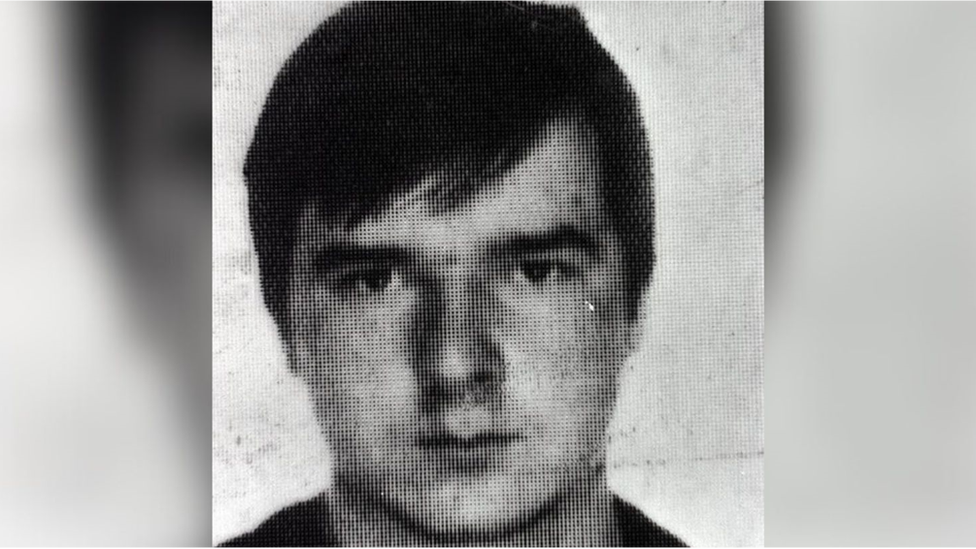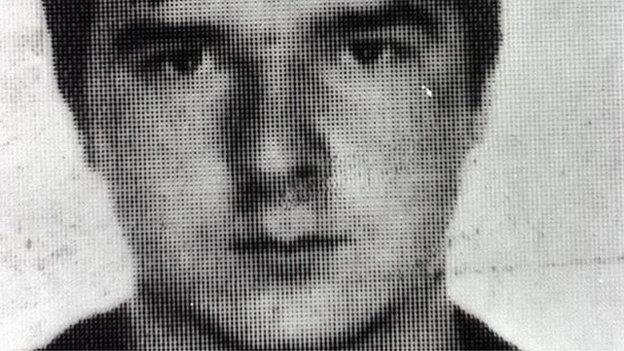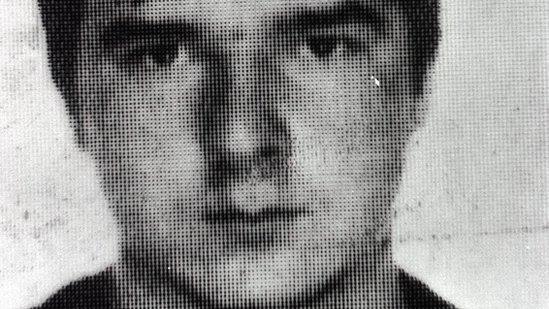Pearse Jordan death: PPS 'failed to take decision' over police officers
- Published

Pearse Jordan was shot by police in 1992
The PPS unlawfully failed to take a decision on any potential criminal charges against two police officers in connection with the killing of an IRA man, a High Court judge has ruled.
Pearse Jordan was shot by police in 1992.
It happened as he ran from a stolen car on the Falls Road in west Belfast.
The judge ordered the PPS to reconsider whether the pair should be prosecuted in relation to the inquest into Mr Jordan's death.
In 2016, an inquest was unable to reach a concluded view about whether the use of lethal force was justified.
But the coroner, Mr Justice Horner, found that two former members of the RUC, officers M and Q, had given inconsistent and unconvincing evidence.
With suspicions that one or both of them edited the original logbook on the day of the shooting, he concluded they may have committed perjury or tried to pervert the course of justice.
The coroner went on to report both officers to the Director of Public Prosecutions (DPP).

The case was heard at the High Court in Belfast
In October last year, the DPP declined to take a decision on whether to prosecute officers M and Q because police had not submitted a file or considered there was evidence of any offence.
Teresa Jordan, Pearse Jordan's mother, challenged that position by claiming breaches of her human rights and the code for prosecutors.
She also contended that the DPP had improperly delegated functions within the Justice (Northern Ireland) Act 2002.
Lawyers for the prosecuting authority insisted it was legitimate for some cases where there is no evidence of a crime to be dealt with by the police without the need for it to take a decision.
However, the judge ruled that the DPP was under a legal obligation to exercise his functions independently after the coroner had referred suspects for potential offences.
'An error of law'
"At the very least, I am satisfied that it was a misdirection for the Director to take the view… that there was no individual reported to whom the test for prosecution could be applied," the judge said.
"It was plainly possible to apply the test for prosecution to the two officers who had been referred to the DPP by the coroner.
"The suggestion that this could not be done was an error of law."
He further held that Mrs Jordan had been deprived of any reasons why the test for prosecution was not met.
Granting her application for judicial review, the judge quashed the Director's determination and remitted the case for reconsideration.
"It appears almost inevitable that the DPP will direct 'no prosecution' on the basis that the evidential test has not been met," he added.
"In doing so he would be required to provide at least some reasons to the applicant for this decision."
Related topics
- Published5 December 2016

- Published7 November 2016
